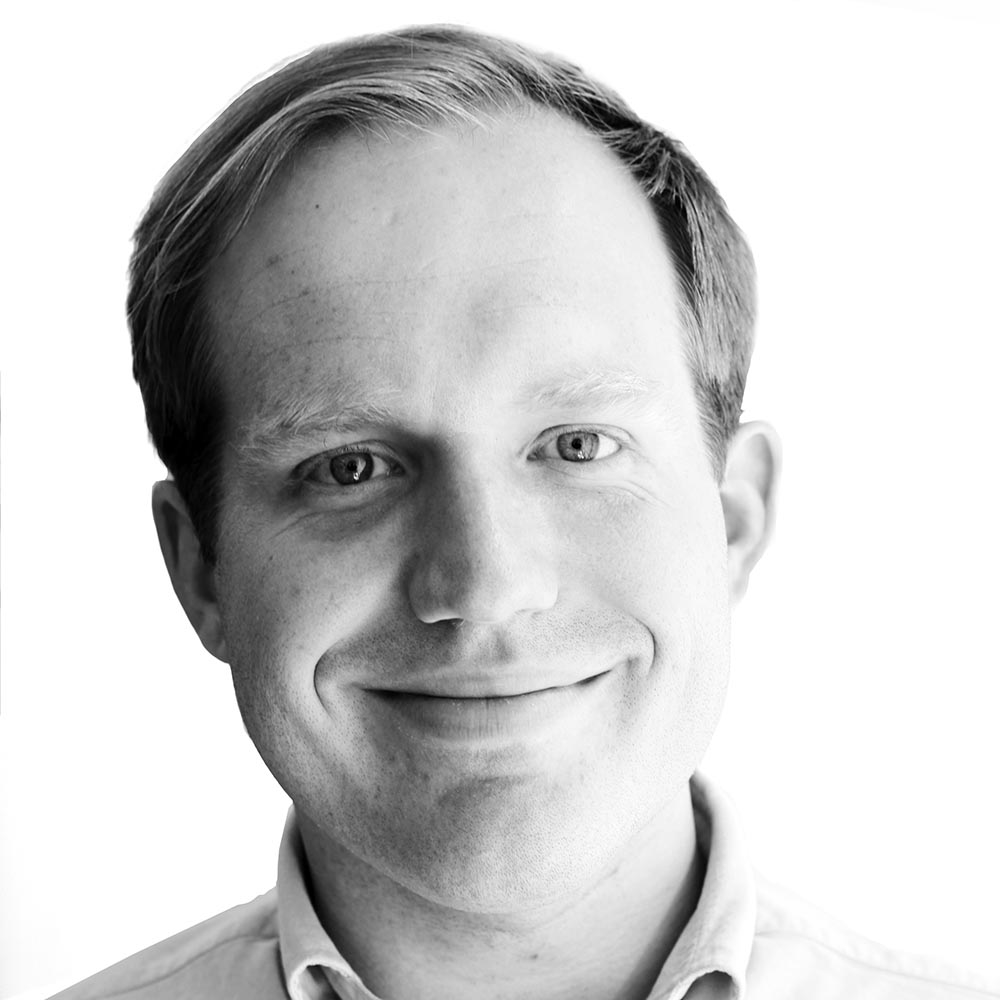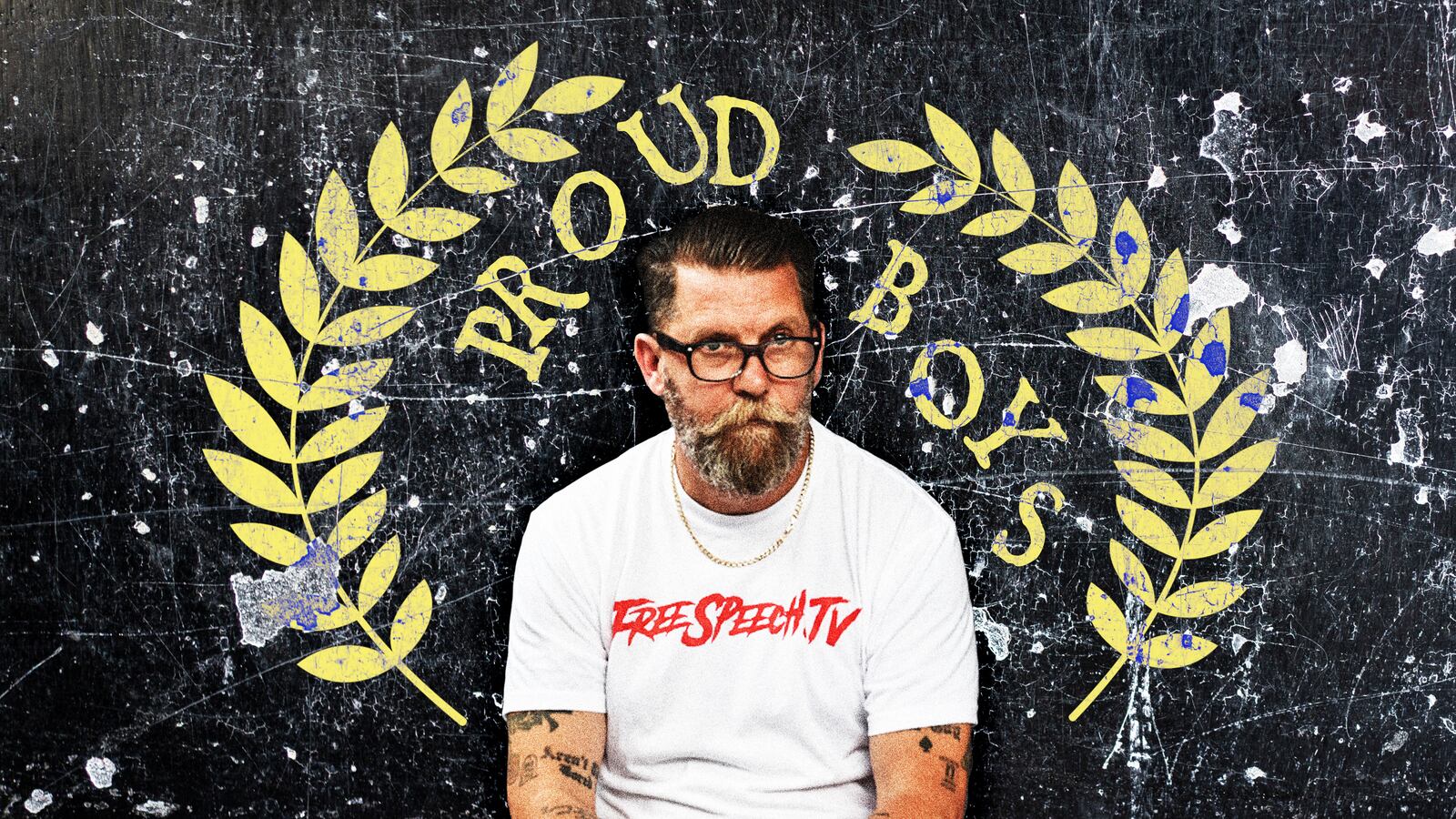When Proud Boys founder Gavin McInnes headed to Las Vegas for WestFest, the annual convention of his hard-drinking, street-fighting right-wing men’s group, he thought he knew what to expect.
In the past, the convention had been a chance for McInnes to be feted as a hero—like “the Fonz” from Happy Days, as he put it on his online show.
But last month, as he headed to this year’s event, McInnes was in for what he later described as “the weirdest experience of my life.”
Much of the Proud Boys’ leadership is currently in jail, facing the prospect of hefty prison terms for their alleged role in the Capitol riot. Still, the Proud Boys meeting in Las Vegas should have been united by their pro-Trump politics, their desire for membership in a hard-drinking brotherhood, and their adherence to a club rule that they only masturbate, at most, once a month.
But McInnes, who claimed to have abandoned any role in the organization in 2018 in the face of law enforcement pressure, found the mood icy. The Proud Boys in Las Vegas were bitterly divided, split roughly evenly between two factions that call themselves “Standard” and “National.” Each group accused the other of harboring federal informants and sex offenders.
“Both sides say that the other side is racist and tolerates pedophiles,” McInnes said later on his online show.
McInnes himself was not popular with many members. He had recently faked his own arrest to go on vacation, a move that struck some Proud Boys as a sort of federal-investigation stolen valor, coming right as one Proud Boy was sentenced to nearly five years in prison over Jan. 6. Still, inspired by witnessing what he called a “massive civil war” in Las Vegas, McInnes tried to quash the fighting. His attempts offer a glimpse into the influence McInnes still holds over the secretive quasi-paramilitary group, and the chaos that has enveloped the organization after the Capitol riot.

Gavin McInnes at a 2017 protest in New York City.
Stephanie Keith/GettyThe split between the Proud Boys factions dates back to the post-Jan. 6 revelations that Enrique Tarrio, the group’s “chairman,” worked as a federal informant on cases that predated the Proud Boys’ existence. Tarrio’s home chapter in south Florida split into two rival chapters, dubbed “Villain City” and “Vice City,” and clashed online over Tarrio’s reputation. Elsewhere in the country, furious members who felt Tarrio had betrayed the club or led them into disaster at the Capitol dubbed him “Fedrique,” and several chapters announced that they would no longer recognize the authority of national-level leaders like Tarrio.
Several of the breakaway chapters envisioned a more decentralized Proud Boys governed not by Tarrio and his ilk, but by a “Standard” of behavior. While it’s not clear to outsiders what all of the rules under that “Standard” are, one supporter summed it up on Telegram, the social media app where Proud Boys banned from Twitter and Facebook have ended up. The two main rules: “No snitches. No sex criminals.”
That split set off a showdown between the splinter faction calling itself the Standard and the chapters that still adhered to Tarrio’s leadership, dubbed “National.” Rival Proud Boys “disavowed” one another, the group’s term for banishing a member from the Proud Boys. Intra-Proud Boy trash talk and threats proliferated on Telegram, where Proud Boys from across the country could follow the drama and fight. One Proud Boy on Telegram boasted that he would be the “Standard killer.”

Enrique Tarrio, outside of the Conservative Political Action Conference on Feb. 27, 2021.
Joe Raedle/Getty“A men’s club is going to attract alpha males, and then they want to fight,” McInnes said on his show, complaining that the internet drama had thrown his group into chaos.
For the Standard’s supporters, the idea of more autonomous chapters offered a chance to abandon what’s seen as an informant-ridden national organization and screen out future law-enforcement infiltrators.
“Gavin, the Standard is how you keep feds out,” wrote one Proud Boy on Telegram.
In the wake of the WestFest stand-off, McInnes took to Telegram on Sept. 19 to try and end the fighting, in a way meant to appeal to that same rampant paranoia about federal informants. He declared without offering evidence that the rift was a “Fed op”—in other words, an FBI scheme to divide the Proud Boys.
McInnes went further on his online show a few days later, issuing bans that effectively dismissed two Proud Boys supporting the Standard faction. McInnes expelled one Standard supporter, Brien James, a would-be Indiana Proud Boy with a history of membership in racist skinhead groups, and one of James’ associates. Any Proud Boys chapter that harbored the two men, McInnes declared, would also be expelled, a move that he hoped would isolate the pro-Standard chapters.
“You’ve got a massive civil war,” McInnes said. “Now it’s just two chapters versus everyone else.”
McInnes’ move to issue expulsions suggests that he still holds leadership power over the Proud Boys, despite his claims to the contrary. McInnes didn’t respond to requests for comment.
Despite McInnes’ efforts, the Proud Boys legal woes have only gotten worse. On Thursday, a prominent Proud Boy named Jeremy Bertino, who operated under the alias “Noble Beard” while in the organization, pleaded guilty to seditious conspiracy for his role in the planning of the Proud Boys’ actions at the Capitol riot. Bertino is cooperating with federal prosecutors as they investigate the Proud Boys.






